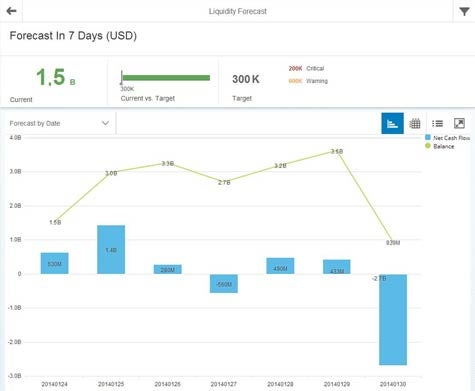SAP today took a significant step toward reshaping financial management processes across the enterprise via its new extensions to the SAP ERP Financials portfolio. Announced at the SAPinsider conference, these extensions are specifically optimized for the SAP HANA in-memory computing platform.
Amit Sinha, senior vice president of marketing for SAP platform and applications, says SAP is now providing real-time financial management applications within the SAP Business Suite powered by SAP HANA that allow organizations to transform everything from how they close their books, to the management of cash flow.
In the case of closing their books, for example, rather than waiting until the end of the quarter, organizations can now choose to close their books on a rolling basis throughout the quarter. That capability makes it a lot easier to identify potential shortfalls in revenue and profits in enough time for the business to potentially alter that outcome before the actual fiscal quarter ends.
Sinha says that now that SAP Business Suite runs on HANA, the line between transaction processing and analytics is blurring. Organizations can now run analytics data directly against trusted transaction data in real time versus moving data into another system that is either out of sync with the primary production system or has had errors introduced when the data was copied from the original system. By running analytics directly against the transaction data, the results generated are more trusted, says Sinha.
Using SAP Fiori applications written in HTML5, Sinha says SAP now envisions a world where end users can self-service their own data discovery needs by interactively launching their own queries against production data in real time.
SAP is giving customers the option of either deploying SAP Business Suite powered by HANA on premise or in a private cloud managed by SAP. In the latter case, Sinha notes that all the updates to SAP Business Suite and SAP HANA are handled by SAP on behalf of the customer.
The implications of in-memory computing platforms within the context of financial management applications are going to be profound. Instead of trying to figure out what is happening to the business well after the fact, financial executives are going to have views into transactions as they actually occur. If nothing else, in-memory computing platforms such as HANA should take much of the guesswork out of making the next financial forecast.




